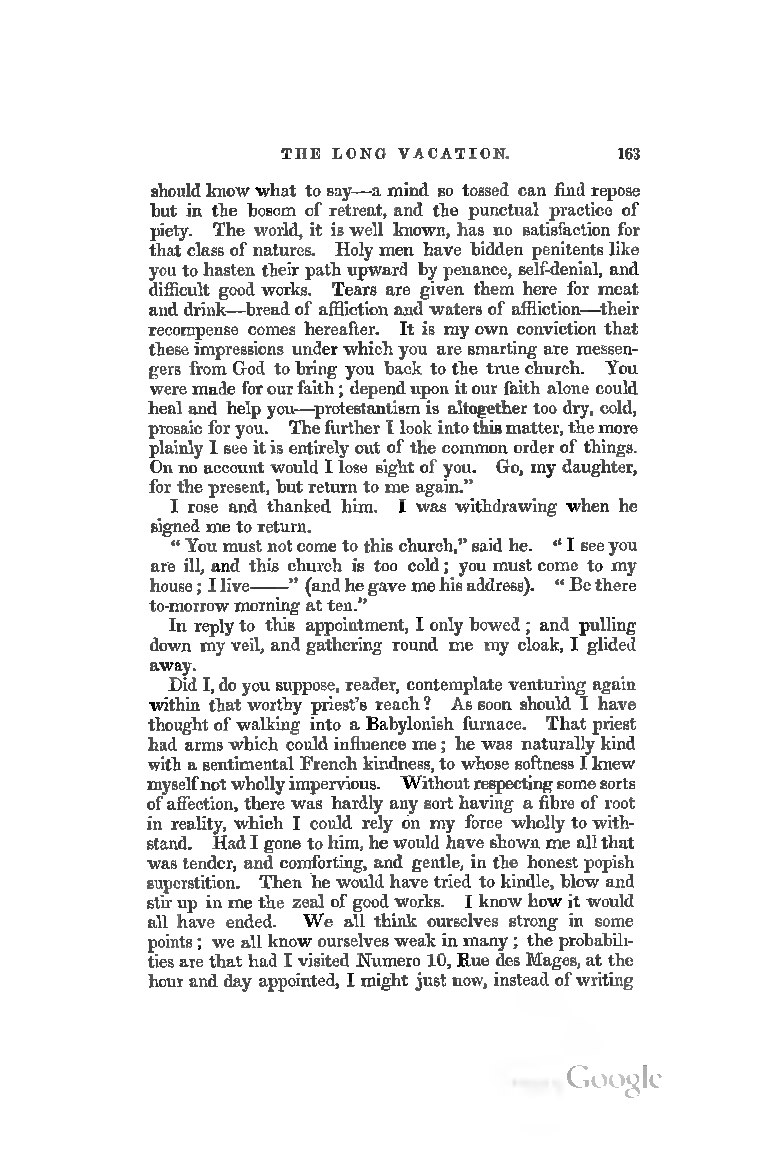should know what to say—a mind so tossed can find repose but in the bosom of retreat, and the punctual practice of piety. The world, it is well known, has no satisfaction for that class of natures. Holy men have bidden penitents like you to hasten their path upward by penance, self-denial, and difficult good works. Tears are given them here for meat and drink—bread of affliction and waters of affliction—their recompense comes hereafter. It is my own conviction that these impressions under which you are smarting are messengers from God to bring you back to the true Church. You were made for our faith; depend upon it our faith alone could heal and help you—protestantism is altogether too dry, cold, prosaic for you. The further I look into this matter, the more plainly I see it is entirely out of the common order of things. On no account would I lose sight of you. Go, my daughter, for the present, but return to me again".
I rose and thanked him. I was withdrawing when he signed me to return.
"You must not come to this church", said he: "I see you are ill, and this church is too cold; you must come to my house; I live" (and he gave me his address). "Be there to-morrow morning at ten".
In reply to this appointment, I only bowed; and pulling down my veil, and gathering round me my cloak, I glided away.
Did I, do you suppose, reader, contemplate venturing again within that worthy priest's reach? As soon should I have thought of walking into a Babylonish furnace. That priest had arms which could influence me; he was naturally kind with a sentimental French kindness, to whose softness I knew myself not wholly impervious. Without respecting some sorts of affection, there was hardly any sort having a fibre of root in reality, which I could rely on my force wholly to withstand. Had I gone to him, he would have shown me all that was tender, and comforting, and gentle, in the honest Popish superstition. Then he would have tried to kindle, blow and stir up in me the zeal of good works. I know not how it would all have ended. We all think ourselves strong in some points; we all know ourselves weak in many; the probabilities are that had I visited Numero 10, Rue des Mages, at the hour and day appointed, I might just now, instead of writing
